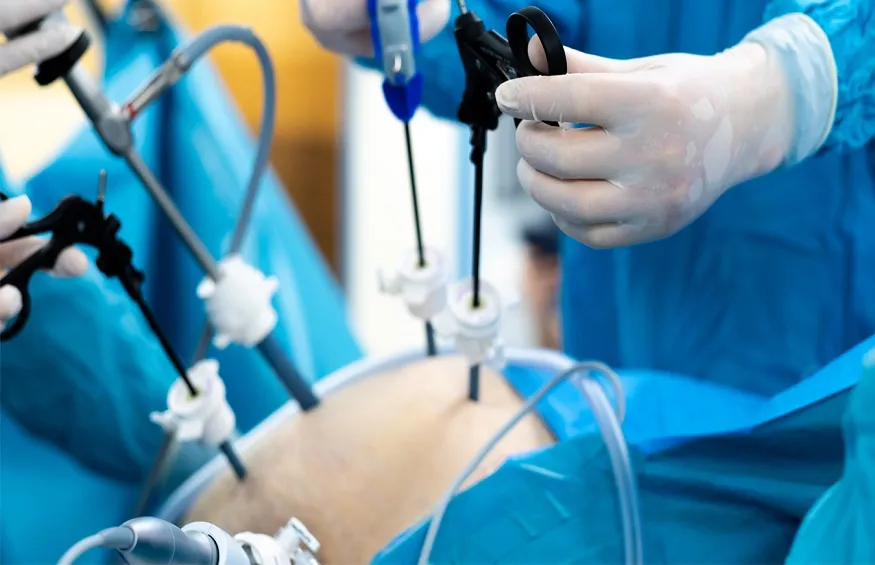For many couples, the dream of welcoming a newborn into their family is often met with challenges. Infertility, which affects approximately one in six people worldwide, has many underlying causes, with obesity being a significant factor. In cases where diet and exercise fail to bring about the desired weight loss, bariatric surgery may become an option. However, a new survey conducted by Orlando Health reveals a surprising and overlooked benefit of bariatric surgery: its ability to improve fertility. According to the survey, 56% of Americans are unaware that bariatric surgery can be an effective way to enhance fertility. This lack of awareness highlights the gap in knowledge regarding the connection between obesity and fertility, and how bariatric surgery can provide a solution to couples struggling with infertility.
Understanding the Impact of Obesity on Fertility
Obesity is a chronic disease that carries with it a range of serious health consequences, including diabetes, hypertension, sleep apnea, and an increased risk of various cancers. For women, obesity can have an even more profound impact, contributing to irregular menstrual cycles, hormonal imbalances, and conditions such as polycystic ovarian syndrome (PCOS)—all of which can impair fertility. The hormonal imbalances that accompany obesity can prevent ovulation, making it difficult for women to conceive naturally.
Dr. Ramirez, a specialist in bariatric surgery, notes that many women with PCOS, a condition that affects women of reproductive age, struggle for years to conceive. However, after undergoing bariatric surgery, many of these women see a significant improvement in their chances of conception. Bariatric surgery helps regulate hormonal levels and normalizes menstrual cycles, addressing some of the root causes of infertility.
Bariatric Surgery: A Game Changer for Fertility
Despite the growing popularity of weight loss medications such as GLP-1 drugs, the survey found that 64% of people are unaware that discontinuing these medications can lead to weight regain. While medications like GLP-1 may offer short-term solutions, bariatric surgery stands out as a more permanent and effective approach. Unlike medications that can be stopped at any time, bariatric surgery alters the digestive system permanently. This procedure not only facilitates long-term weight loss but also triggers hormonal changes that can improve fertility.
Bariatric surgery works by reducing the size of the stomach, which limits the amount of food a person can consume and alters the hormones involved in hunger and metabolism. For women, this includes an increase in the production of hormones that regulate ovulation, improving the chances of conception. Furthermore, by promoting weight loss, bariatric surgery can reduce the risk of other conditions that interfere with fertility, such as diabetes and hypertension.
However, Dr. Ramirez advises that women wait between 18 to 24 months after surgery before attempting to conceive. This period allows the body to recover from the surgery and adjust to the changes, ensuring that the body is in optimal condition for pregnancy. During this time, the body can better absorb the necessary nutrients, and the risk of complications such as hypertension, preeclampsia, and gestational diabetes is significantly reduced.
A Personal Success Story
The life-changing benefits of bariatric surgery are not merely theoretical. Karla Grimmett, a 38-year-old woman, provides a powerful example of how the procedure can dramatically improve fertility. Karla, who weighed 380 pounds and had type 2 diabetes, was facing severe health issues, including hypertension and high blood pressure. She was told by doctors from a young age that she would never have children due to her PCOS and obesity. Her health was deteriorating, and she found herself in the intensive care unit due to complications from her diabetes. After careful consideration, Karla decided to undergo gastric bypass surgery, hoping to improve her health and lose weight.
What she did not expect was that the surgery would also address her fertility issues. After the procedure, Karla saw a significant improvement in her health. She went from taking 12 medications a day to just two, and her menstrual cycle, which had been irregular for years, normalized. For the first time in her life, Karla had a regular monthly period.
In an emotional moment, Karla discovered that she was pregnant. She had taken multiple pregnancy tests to confirm the results, as she had long given up hope of ever having children. In November 2022, Karla gave birth to her daughter, Everleigh—a moment she describes as the best thing that ever happened to her.
The Science Behind Bariatric Surgery and Fertility
Bariatric surgery works by inducing weight loss and triggering hormonal changes in the body. When a person loses a significant amount of weight, their hormonal profile begins to shift, improving reproductive function. In women, the regulation of hormones like insulin and leptin, which are involved in hunger and fat storage, can directly affect the menstrual cycle and ovulation. Additionally, bariatric surgery may improve the sensitivity of insulin and reduce the levels of inflammation in the body, both of which can enhance fertility.
The improvement in fertility after bariatric surgery can also be attributed to the fact that the surgery reduces excess fat tissue, which is a major source of estrogen. High levels of estrogen, produced by fat cells, can interfere with the menstrual cycle and ovulation. By reducing body fat, bariatric surgery helps to restore hormonal balance and promote normal reproductive function.
The Importance of Education and Awareness
The Orlando Health survey highlights a critical gap in public knowledge regarding the benefits of bariatric surgery for fertility. According to the survey, many Americans are unaware that obesity can affect fertility, and even more are unaware that bariatric surgery can help improve fertility in women struggling with obesity-related infertility. This lack of awareness can prevent individuals from seeking the help they need and lead to prolonged struggles with infertility.
Dr. Ramirez urges people to understand the connection between obesity and infertility and to consider bariatric surgery as a viable option for those who have not had success with diet and exercise alone. While bariatric surgery is not suitable for everyone, it can be a powerful tool for individuals who are struggling with obesity and related fertility issues.
The Road to a Healthy Pregnancy
For women who undergo bariatric surgery, the journey does not end with weight loss. It is essential to follow a healthy lifestyle after surgery, including a balanced diet, regular physical activity, and ongoing medical care. While bariatric surgery can significantly improve fertility, it is important to remember that a healthy pregnancy also requires proper prenatal care. Women who have had bariatric surgery must work closely with their healthcare providers to ensure they are receiving adequate nutrition and monitoring for any potential complications during pregnancy.
Bariatric surgery offers a unique opportunity for women struggling with obesity-related infertility to regain control over their health and fertility. For those considering this option, it is important to consult with a qualified healthcare provider to discuss the potential risks and benefits. With proper guidance and care, bariatric surgery can not only improve overall health but also help women achieve their dream of becoming parents.
Bariatric surgery is not just a weight-loss solution—it is a powerful tool for improving fertility in women affected by obesity. As demonstrated by the personal story of Karla Grimmett, bariatric surgery can bring about life-changing results, improving health, regulating hormones, and increasing the chances of conception. Despite the challenges and misconceptions surrounding obesity and fertility, bariatric surgery offers a promising path for those struggling to conceive. By raising awareness of the link between obesity, fertility, and bariatric surgery, we can help more individuals make informed decisions about their health and increase their chances of having a successful pregnancy.
If you are struggling with obesity and fertility, consider speaking to your healthcare provider about bariatric surgery as a potential option. It could be the key to unlocking a healthier, more fulfilling future for you and your family.





















